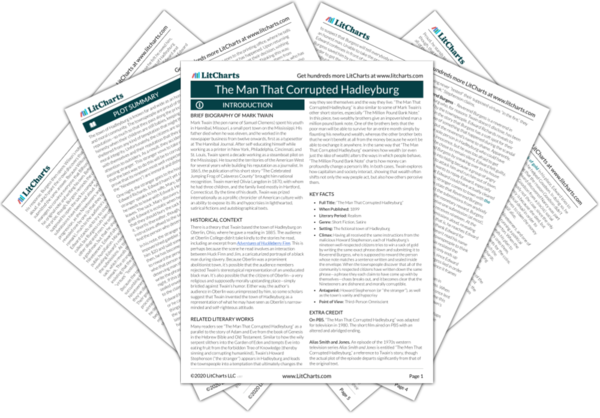Needless to say, there’s no reason for Edward to think that Burgess “exposed” him to the community—no reason other than his own paranoia, that is. Unfortunately, as he unburdens himself of his own guilt, he only does more damage, since he reveals to the townspeople that Reverend Burgess lied in order to protect him, thus making Burgess yet another Hadleyburg liar. As such, Edward remains selfish and ignorant right up until his death, thinking only of himself even when he’s trying to do the right thing. Having lived an entire lifetime thinking of himself as an honest man without ever having to prove his integrity, he’s so vain that he can’t even see how his confession will negatively influence the very man who tried to help him.


